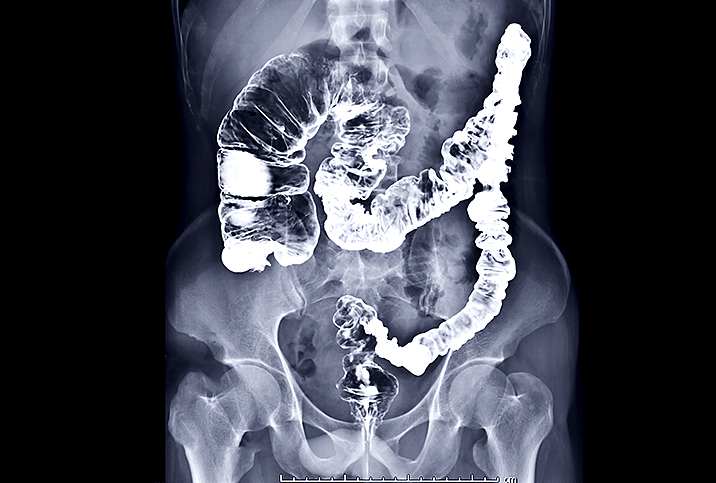What Men's Sexual Health Screenings Do You Need at 60?

Few things make you feel your age more than new aches and pains. But even if you feel like a million bucks, turning 60 is a good reminder to schedule important health screenings.
Health screenings such as blood pressure checks and colonoscopies aren't fun. They are, however, a great way to benefit men's sexual health and health overall.
Sixty marks the age at which many men step into a urologist's office for the first time, according to Timothy Clinton, M.D., a urologist at Brigham and Women's Hospital in Boston. When you monitor your health, you're in a better position to tackle medical issues before they diminish your physical abilities, he said.
"As we age, it's important to be more diligent about our health," said Damian "Pat" Alagia, M.D., the senior medical director for advanced diagnostics and women's health for Quest Diagnostics, headquartered in Secaucus, New Jersey. "So the tests and screenings increase rather than diminish."
For men turning 60, doctors recommend tests and screenings that involve everything from the penis and testicles to the colon, rectum and heart.
Routine physical exam
First things first: Don't neglect routine physicals with your family doctor.
"By the age of 60, every man should have or begun to establish a relationship with a general practitioner," said Robert Valenzuela, M.D., a urologist and the director of penile prosthesis surgery at Icahn School of Medicine at Mount Sinai in New York City. "A routine annual visit should include [a] cardiovascular exam, including an electrocardiogram, respiratory system evaluation if you are a smoker, and a chest X-ray."
Necessary bloodwork includes tests for high blood pressure and cholesterol, anemia, kidney and liver function, testosterone and prostate-specific antigen (PSA). While blood pressure testing should be scheduled annually, cholesterol panels can be conducted every five years.
Men in their 60s should also consider a diabetes risk assessment and a vitamin D test, according to Alagia.
Of course, annual physicals also include checking your height and weight and discussing any concerns with your doctor. It's essential to be honest with your doctor about your diet, alcohol intake and level of physical activity. Lifestyle factors such as those are known to play a role in everything from erectile dysfunction (ED) to heart disease.
Penis and testicles
Your family doctor performs an annual physical, and your testicular exams are in your own hands. A urologist takes care of genitourinary exams. Essentially, they are evaluations of your pelvic and genital areas.
"A penile exam can help identify genital warts or any lesions that can be suspicious for penile cancer, especially in uncircumcised men," Valenzuela said.
Penile cancer is rare, but is most common in older men. The average age at diagnosis is 68.
Cancer isn't the only concern. A penile exam can also reveal Peyronie's disease, sexually transmitted infections (STIs) and other infections or irritation. Fortunately, good penile hygiene goes a long way. Uncircumcised men should regularly retract their foreskin for proper cleaning and assess the area for anything that looks or feels out of the ordinary.
Testicular cancer is most common in men in their 20s and 30s, but a diagnosis is still possible later in life.
"Monthly self-testicular exams continue to be important in all men, even at the age of 60," Clinton said.
A urologist should also examine the testicles for lesions during a genitourinary exam. Benign lesions can be monitored for changes and assessed for potential surgical removal during these screenings, according to Valenzuela.
Finally, the genitourinary exam should include an assessment for hernias, he said. Not all hernias cause pain, so your urologist needs to check for them.
Prostate gland
One of the most important things you can do for your health at age 60 is to schedule a prostate exam. That's true even if you aren't experiencing any symptoms of benign prostatic hyperplasia (BPH), such as a weak urine flow or an increased urgency to urinate. As the name suggests, BPH is a benign condition and not an indication of cancer.
Some men need prostate care at a younger age, however.
"For Black and brown males, or if you have a family history of prostate cancer, a PSA should be drawn at the age of 50," Valenzuela said.
Complete prostate gland evaluations involve a physical exam, a digital rectal exam (DRE) and a PSA test. A DRE and PSA test both screen for prostate cancer. The DRE checks for physical lumps and bumps and prostate enlargement. The PSA test identifies elevated protein levels that are sometimes an indication of prostate cancer, but not always. Often, a high PSA level points to noncancerous origins, including prostatitis and BPH. It can even be caused by the digital rectal exam itself.
Some guys need nutritional help to take care of their prostate gland. A supplement is the preferred method for many men. One that combines three prostate-friendly herbs in one capsule could be for you. Prostate Health vitamins from Giddy Health utilize saw palmetto, stinging nettle and pygeum in a safe and effective supplement formulated to manage prostate size and maintain a healthy urinary flow. And its microbead technology ensures a timed release throughout the day.
Colon and rectum
Colorectal cancer is the third-leading cause of cancer-related deaths among Americans, according to research published in the journal Clinical and Translational Gastroenterology.
The risk of colorectal cancer increases after age 50.
Colonoscopies are critical to early diagnosis because colorectal cancer does not always cause symptoms. The U.S. Preventive Services Task Force (USPSTF) recommends beginning regular screenings at age 45, or younger if you have a personal or family history of colorectal cancer.
If you've been on top of overall and sexual health screenings, you might not need to schedule a colonoscopy immediately after your 60th birthday. For people with an average risk, a colonoscopy is recommended once every 10 years. Consult your doctor for a personalized recommendation for this particular cancer screening.
Heart
By age 60, you should already be undergoing blood pressure tests and cholesterol screenings to assess heart health, according to Alagia and Valenzuela. On top of increasing your risk for heart disease, high cholesterol and high blood pressure have been linked to ED.
Screening for cardiovascular issues is standard protocol during routine blood tests and physical exams. That's good news for men who are already in the habit of scheduling annual physicals. However, if you have avoided the doctor for years, it's best to make an appointment as soon as possible. Knowing that you're healthy—or getting personalized medical guidance to address underlying health issues—is worth any temporary inconvenience or discomfort.
Sexual health
About 60 percent of men in their 60s experience some form of ED. Sexual functioning in general can be affected, too. Most men also notice a gradual decrease in libido and sexual activity over the years, Alagia said.
Sometimes, lower libido is a normal part of aging. Other times, decreased sexual desire or trouble getting or maintaining an erection can indicate an underlying health problem. ED can be a warning sign of heart disease, for instance.
Both ED and low libido can be related to diabetes, high blood pressure or even high cholesterol, Valenzuela explained.
A sudden decrease in sex drive could also indicate hypogonadism (low testosterone), according to Clinton. If you notice declining sexual health, it's important to tell your doctor. Together, you can pinpoint the root of the problem.
"At the end of the day, a man's sexual health is often reflective of his overall state of health," Clinton said. "The healthier a man is in his 60s, the better his libido and, likely, testosterone levels."
The bottom line
While aging is a fact of life, regular health screenings can help you detect problems before they take over your body and life.
If you've recently turned 60 and haven't had an up-to-date physical exam, bloodwork or other necessary screenings, consider picking up the phone to make those appointments. Most assessments are quick and painless. The reward is reassurance about your health and timely treatment for any underlying issues.
"The healthier a man is, the better he will enjoy his 60s and limit the need to routinely see a urologist," Clinton said.


















